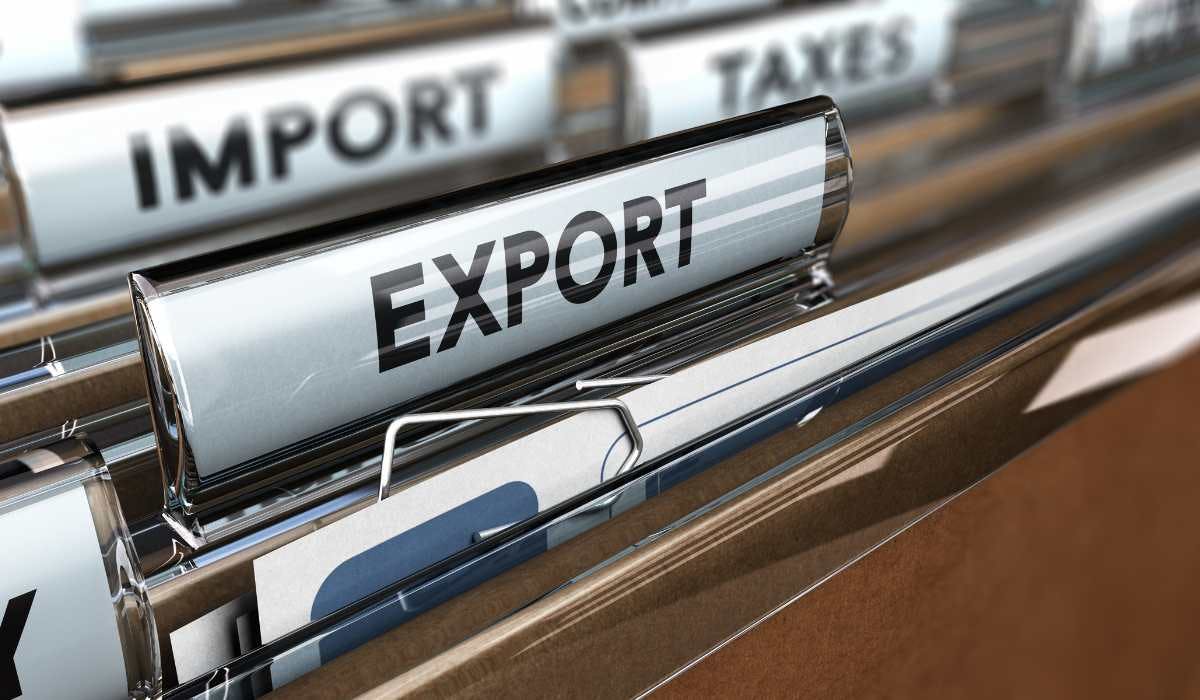- Decide on the type of trading company
- Incorporate your company
- Obtain relevant licenses and permits
- Understand trading company clearance procedures
- Secure financing
Hong Kong offers a strategic location, tax-friendly system, and free trade policy, making it an ideal hub for international trading companies.
Businesses can choose from import trading companies, export trading companies, or entrepot trading companies based on their needs and goals.
Incorporate your company, obtain necessary licenses and permits, comply with trading clearance procedures, and secure financing from Hong Kong’s robust banking system.
Opening a trading company in Hong Kong is a lucrative and feasible venture with the right steps and support from services like Air Corporate.
Trading companies exist in most major cities worldwide and are considered to be extremely profitable ventures, especially for those looking to tap into international markets.
A trading company is a company involved in the business of purchasing, distributing, and selling goods and services on an international scale.
These goods and services are myriad and are meant to meet various needs, including those of consumers, businesses, and even governments.
If you're looking to open and operate a trading company in Hong Kong, this article will provide all the information you will need to do so successfully.
What Are the Benefits of Opening a Hong Kong Trading Company?
Hong Kong's trade performance for the first two months of 2024 showed a positive trend in exports but a trade deficit. Overall, exports of goods rose by 16.6% compared to January and February 2023. However, imports also increased, by 9.7%, resulting in a visible trade deficit of $38.1 billion. This deficit represents 5.4% of the total value of imported goods.
These outstanding values lend credence to Hong Kong's ranking as one of the world's top 50 traders in merchandise goods and commercial services by the World Trade Organisation.
This impressive trade volume and global ranking is a clear pointer to the relevance of Hong Kong in the international trade scene and the profitability of opening and operating a trading company in Hong Kong.
Here are some other benefits you stand to enjoy if you set up your trading company in Hong Kong.
Strategic Location
If you want to access and establish trading relations in Asia, the mainland and Hong Kong are your best choices because the majority of the total value of imported and exported goods and services in Hong Kong are from and to destinations in Asia, respectively.
Hong Kong is situated in the heart of Asia, close to most of the continent's largest and most robust economies.
Hong Kong also provides convenient access to the rest of the world with its ever-busy air and seaports.
Hence, setting up a trading company in Hong Kong will provide easy access to other countries.
Tax-Friendly System for Trading Companies
Hong Kong boasts one of the world's most tax-friendly systems, with only three direct taxes applicable to corporate bodies or businesses.
These taxes are profit tax, property tax, and salaries tax.
These taxes are applied at fixed rates and with generous allowances and deductions available to further reduce your tax burden.
As such, a trading company opened in Hong Kong won't have to deal with sales tax or VAT, withholding tax on dividends and interests, capital gains tax, or estate tax.
Also, the excise tax is applicable only to the import or export of certain products like liquors, tobacco, hydrocarbon oil, and methyl alcohol.
Free Trade Policy
Hong Kong's economy is governed by a free trade policy.
There is hardly any restriction on trading most goods and services.
Hong Kong trading companies are also not saddled with duties, tariffs, subsidies, or other barriers to trade.
Hong Kong is also a party to several multilateral, regional, plurilateral, and bilateral free trade agreements that help to ensure a secure and favorable trading environment.
Mainland China, New Zealand, member states of the European Free Trade Association (EFTA), Australia, Chile, and the Association of Southeast Asian Nations (ASEAN) are a few of the entities with which Hong Kong has entered into free trade agreements.
To the above, Hong Kong also maintains a strong rule of law, has no foreign exchange control or restriction mechanism, and has some of the world's best infrastructure.
With these many benefits, setting up a trading company in Hong Kong will easily become one of the best business decisions you ever made.
What Type of Trading Companies Can Be Opened In Hong Kong?
Once you've made the decision to open a trading company in Hong Kong, you need to also determine the type of trading company to set up.
Although the choice of a trading company to set up is personal or based on your business interests, it is important that you're aware of the major types of trading companies that can be opened in Hong Kong.
This way, you can opt for the one best suited for your business.
The trading companies that can be opened in Hong Kong are those involved in import trade, export trade, and entrepot.

Import Trading Companies
An import trading company is solely involved in the purchase of goods and services from foreign suppliers or sources to meet domestic demands.
These domestic demands may exist due to the impossibility or impracticability of producing such goods and services locally.
They may also exist because of the prestige, cachet, or other special qualities of foreign-sourced goods and services.
Pricing is also a common factor in determining domestic demand, as certain goods or services are cheaper to import than produce locally.
Export Trading Companies
Are you looking to understand export trading companies? An export trading company is the direct opposite of an import trading company. It is involved in selling locally produced goods and services to foreign purchasers.
These locally produced goods or services will ideally be easily and efficiently sourced commodities for which there is global demand. Moreover, export trading companies may choose to outsource some of their operations to export management companies.
Entrepot
An entrepot trading company combines the functions or businesses of both import and export trading companies.
An entrepot trading company imports goods or services from a foreign supplier or producer and subsequently exports them to a different foreign entity.
In this trading arrangement, no additional value or processing is applied to the imported goods or services before export.
Although entrepot trading is no longer popular or practiced in most international trading posts, it is still a popular form of international trade in Hong Kong.
Entrepot trading is useful in reducing transportation costs and also comes in handy when you're trying to maximize specialized agents of distribution and processing.
You should note that the above types of trading firms aren't watertight categories, and a trading company can be involved in one or more of the above businesses.
Trading companies can also function as sales agents for domestic exporters, buying agents for importers, exclusive distributors, or some other type of intermediary in international trade.
How to Open a Trading Company In Hong Kong
Once you've identified the most suitable type of trading company for your business, you may proceed to open one in Hong Kong.
Here are the key steps to opening trading Hong Kong-based companies:
Company Incorporation
The first step in opening your trading company is to incorporate the trading company.
Incorporation basically entails your company's registration with the Hong Kong Companies Registry.
You can opt for the business structure that is suitable for your business and will ensure the best profit margins when registering your company.
For example, you can opt for a private or public company.
Thus, it is advisable to learn about the advantages and disadvantages of the different company types so that you can pick the best type for your business.
Incorporating your trading company in Hong Kong is a straightforward process.
You should note that companies in Hong Kong can be wholly owned by foreigners, and there are few to no distinctions between locally owned- and foreign-owned companies.
Obtaining Relevant Licenses and Permits
Once your trading company has been incorporated in Hong Kong, you can proceed to obtain relevant licenses and permits to carry on business.
There are certain non-tariff restrictions that exist with the import and export of certain goods and services.
These non-tariff restrictions mostly take the form of licensing requirements and are applied to protect public health and safety, internal security, and environmental needs.
The goods and services whose trade requires licensing are determined by relevant laws.
As such, if your trading company will be involved in the trade of such specified commodities, these licenses must be obtained from the relevant government agency.
The licensing process is generally straightforward and easily accessible.
Trading Company Clearance Procedures
By virtue of the Import and Export (Registration) Regulations, trading companies or other persons involved in the import and export of goods or services, with the exception of exempt goods and services, are required to file an Import/Export Declaration with the Commissioner of Customs and Excise.
This Declaration must be filed within 14 days of the goods or services being imported or exported. This declaration can be filed electronically.
Other administrative processes that may occur in the clearance process of imported or exported goods include a thorough inspection of related documents (such as manifests, bills of lading, invoices or packing lists, etc), physical examination of cargo, and more.
Financing
As stated earlier, Hong Kong boasts of some of the world's best infrastructure for the conduct of business.
One such infrastructure is its banking system which ensures you have unrestricted access to the financing and financial instruments necessary to run your trading company's business.
Some easily accessible financing options and financial instruments that can be obtained in Hong Kong include Letters of Credit, overdrafts, revolving loans, term loans, import/export loans, export credit insurance, etc. These instruments can be helpful to cover initial business expenses, such as training and recruitment costs, as well as ongoing operational costs.
Conclusion
Opening a trading company in Hong Kong might seem a challenging task, but it is certainly doable.
Follow the steps and procedures described above, and you will be sending out or receiving your first shipment in no time.
Opening a company in Hong Kong means starting with incorporating the services of a Company Secretary.
Trading companies from all corners of the globe choose Air Corporate for their incorporation needs in Hong Kong.
Incorporate with Air Corporate today and receive free business kit items to help your business get off the ground faster.



